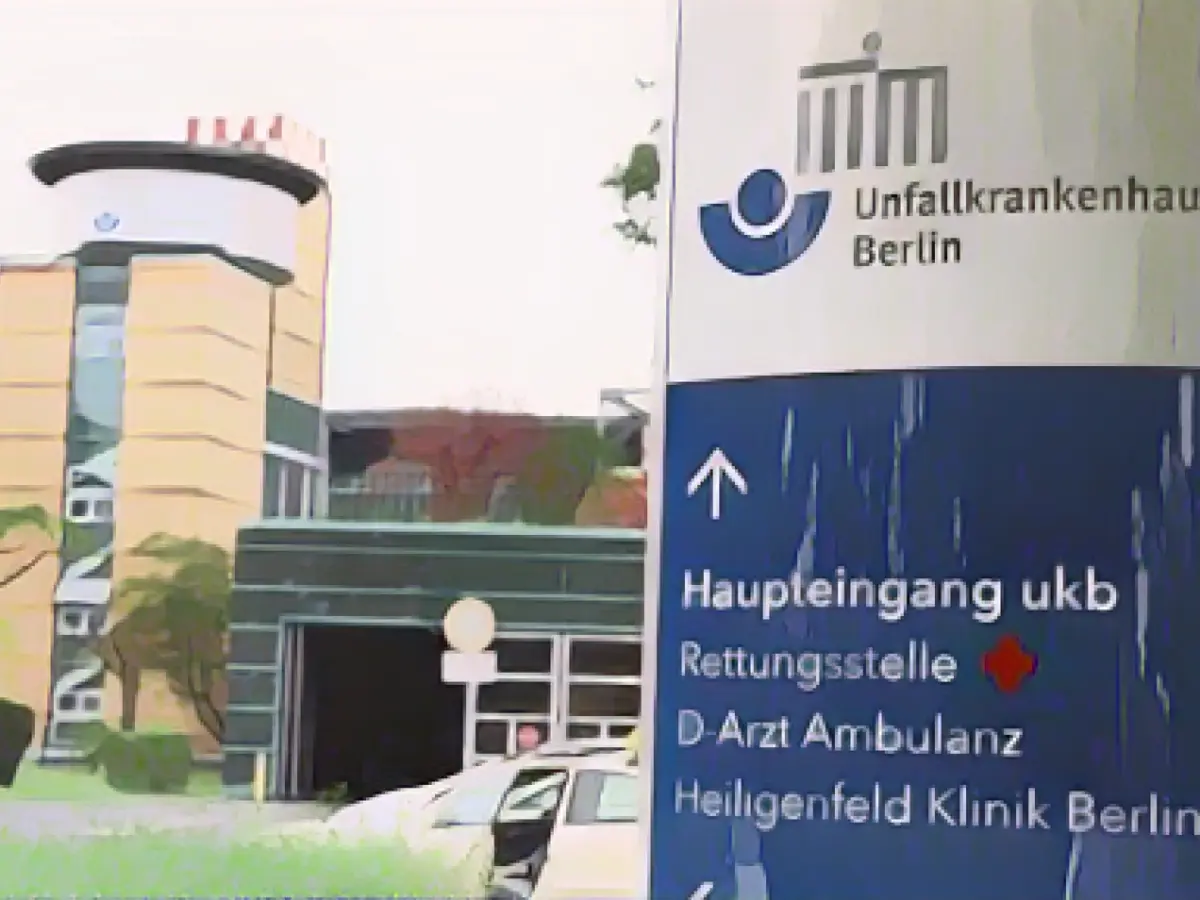New Year's Eve - Clinic: Mainly men seriously injured by fireworks
According to data from Unfallkrankenhaus Berlin (UKB), those seriously injured by fireworks in Berlin are conspicuously often male. "97 percent of firework victims are men," according to a UKB analysis of around 150 patients who were treated as inpatients there for serious hand injuries around the turn of the year from 2005/06 to 2022/23.
"They use firecrackers and fireworks more frequently and are more prone to risky behavior when lighting them than women," say experts from the Department of Hand, Replantation and Microsurgery. Alcohol consumption also plays a major role.
According to UKB experience,injuries among children and adolescents tend to accumulate from New Year's morning onwards. The doctors explain this phenomenon on the days after New Year's Eve by the fact that children find unexploded bombs on streets and squares and try to set them off. "This is particularly dangerous, as they can explode unexpectedly quickly if the fuse is partially lit, for example," says the analysis.
Complex injuries from firecrackers - also psychological
It stands to reason that if something goes wrong when handling firecrackers and rockets, it often affects the hands. According to the UKB, the spectrum ranges from superficial burns and wounds to dislocations and broken bones, tendon, vascular and nerve injuries through to amputations and destruction of the entire hand. "Other areas of the body at risk are the face, eyes and ears."
It can become risky, for example, when reigniting or if firecrackers and fireworks are not thrown out of the hands quickly enough, as the clinic's experience shows. "Illegal and uncertified firecrackers and explosives or even homemade explosives often lead to particularly serious injuries."
On average, the affected patients were treated on the ward for around ten days, with some of them requiring multiple operations. "One patient even required 12 operations before all injuries were finally treated," it said. According to the evaluation, numerous patients lost fingers or parts of them. An entire hand had to be amputated once during the period because of fireworks.
"In addition to the external injuries, the psychological consequences are often considerable," the doctors wrote. "As part of the severe traumatization caused by the explosion, almost a quarter of patients were diagnosed and treated for post-traumatic stress disorder during their inpatient stay."
Preparations underway for New Year's Eve
The accident hospital is significantly increasing its operating capacities on New Year's Eve, according to a spokesperson. "We assume that operations will be carried out continuously from 3.00 a.m. until late New Year's Eve."
In the data analysis, the UKB advocates starting education about firecracker injuries at school and in training. One of the many pieces of advice is: "If alcohol is involved: keep your hands off fireworks. Alcohol makes you careless." Fireworks that have not exploded should be cleared away and disposed of so that they do not accidentally fall into the hands of children.
Read also:
- Snow chaos further restricts Bavaria
- "Zoltan" sweeps across the country - disruptions to rail traffic
- "Zoltan" brings masses of water, rail chaos and suspected tornadoes
- Lifestyle 2023 from "Breathless" to cinnamon buns
- Despite the injury risks, many men in Germany continue to use fireworks excessively during New Year's Eve, leading to a high number of serious hand injuries at Unfallkrankenhaus Berlin (UKB).
- Children and adolescents in Berlin often find unexploded fireworks on the streets and squares after New Year's Eve, putting themselves at risk of injury as they try to set them off.
- The UKB has reported various types of injuries from fireworks, ranging from superficial burns and dislocations to broken bones and even the amputation of entire hands.
- The effects of fireworks can be devastating, not just physically but also psychologically, as evidenced by the high number of patients diagnosed and treated for post-traumatic stress disorder (PTSD) after their inpatient stay.
- To prevent such injuries, the UKB recommends starting firework safety education in schools and training programs, advising against handling fireworks with alcohol and securely disposing of unexploded fireworks to prevent accidents.
- Berlin hospitals, such as UKB, are preparing for the surge of patients on New Year's Eve by increasing their operating capacities, ensuring they can provide timely and appropriate care for those injured by fireworks.
- Women in Germany tend to show less frequency and eagerness towards risky firework behavior compared to men, which likely contributes to a lower number of injuries among females during New Year's Eve celebrations.
Source: www.stern.de






